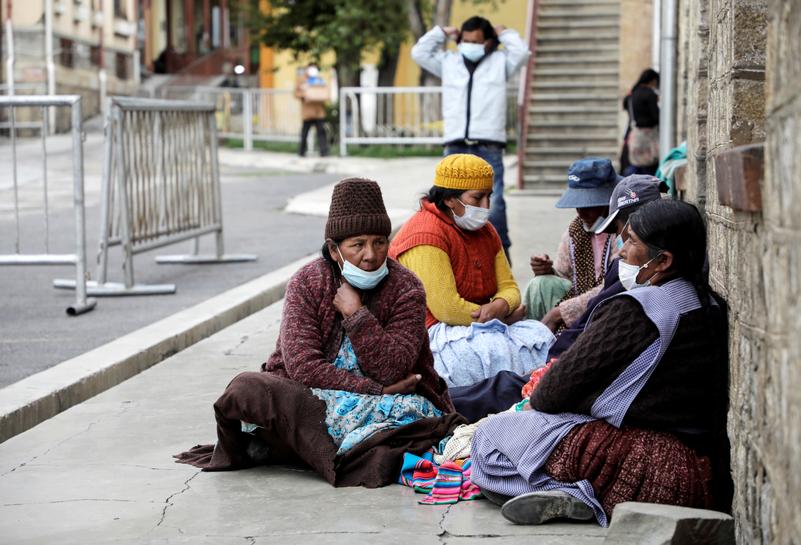RIO DE JANEIRO, BRAZIL – With 43 new fatalities this Sunday, Bolivia has amassed 15,024 covid-related deaths. At the same time, strict quarantines are being maintained in five regions of the country to prevent further contagions in this third wave of the pandemic.
The country registered 1,428 new cases. A total of 387,162 infections have been recorded since the beginning of the pandemic.

The regions with the most cases are La Paz with 544, central Cochabamba with 332, and eastern Santa Cruz with 182 cases. In the other six regions, infections varied between 118 and 7, according to the latest report.
In this third wave, new daily infection records were registered, with more than 3,000 positive cases and more than a hundred deaths, a situation not seen since the pandemic began in the country last year.
Faced with the increase in cases, local authorities in five regions of the country tightened restrictive measures and decided to establish a strict quarantine to prevent further transmission of Covid-19.
This is the case in Cochabamba, which has been the most affected by this wave and has been under a rigid quarantine since last Friday until this Sunday. The situation in Cochabamba is critical, with relatives of the sick forming long lines to get oxygen or medicines and even to get a place in intensive therapies in the crowded hospitals.
The eastern city of Santa Cruz is also in quarantine this Sunday with the suspension of economic activities in addition to restrictions on vehicles, as well as a ban on the sale of alcoholic beverages.
The highland city of Potosi and the southern city of Tarija have decided on “encapsulation” for this day. Oruro has decided to apply a strict quarantine on weekends and holidays to stop contagions.
Along with the Ministry of Health, the National Bolivian Brewery opened an oxygen generation plant in the city of Villa Tunari in Cochabamba that can fill 60 bottles per day.
The mass vaccination, due to which there were long lines, also progressed, allowing 1,454,262 people to be vaccinated with the first dose and 375,298 with the second dose.

